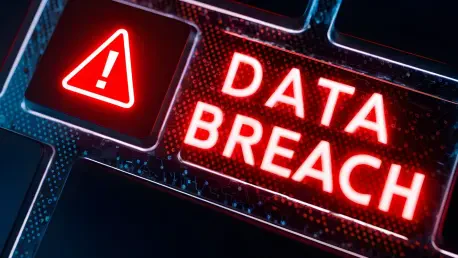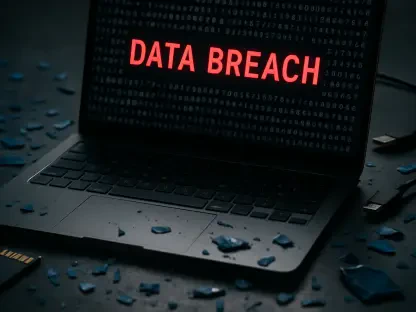Data breaches are a growing concern as organizations face increased responsibility to protect sensitive information and inform affected parties promptly. When personal data is compromised, companies must act swiftly to evaluate the incident’s impact and notify those affected. The recent breach at VeriSource Services demonstrates why delays in breach notifications can have dire consequences. VeriSource, a company specializing in handling employee benefits and HR administration, faced significant scrutiny after a breach exposed personal data of about 4 million individuals. Despite the severity of the situation, the organization took over a year to inform all affected parties fully.
This incident raises a critical question: should companies face stricter penalties for delayed notifications after a data breach? Timely communication is key not only because it empowers individuals to protect themselves from identity theft and fraud but also because it maintains trust in data handling systems. Without expedited disclosure, the window for malicious use of exposed data widens, creating broader risks. These delays can result in devastating financial and reputational impacts for the individuals involved and even for the company itself. Thus, this scenario demands an urgent reevaluation of how organizations are held accountable for timely breach disclosures.
1. Consider Using a Personal Data Elimination Service
With the increase in data breaches, it is prudent for individuals to consider removing personal information from publicly accessible databases and people-finder sites. In the wake of the VeriSource incident, affected individuals face heightened risks due to the exposure of sensitive data like Social Security numbers, birthdates, and mailing addresses. Personal data elimination services can help safeguard this information, making it less accessible to potential scammers. These services aim to cleanse public records, providing an extra layer of protection against identity theft and fraud.
Eliminating accessible personal data online not only reduces the risk of exploitation but also enhances privacy. As individuals evaluate their vulnerability, especially after a breach like that of VeriSource, assessing the visibility of their personal data becomes imperative. At its core, this approach is about taking proactive steps to ensure that information, once exposed, does not remain a continuous target for cybercriminals. It underscores the importance of individuals playing an active role in their digital security, especially when companies may delay breach notifications, increasing the risk window for impacted data.
2. Protect Against Identity Theft and Utilize Identity Theft Defense
The aftermath of data breaches necessitates a robust defense against identity theft. Following the massive data exposure from VeriSource, individuals must recognize their increased susceptibility to identity theft. Hackers possessing high-value information like Social Security numbers can easily perpetrate fraudulent activities, including opening falsified accounts or filing incorrect tax returns. To counter these threats, freezing bank and credit card accounts can prevent unauthorized access and usage by criminals. Furthermore, engaging identity theft defense services adds a layer of 24/7 monitoring against unusual activity.
Identity theft protection offers continuous oversight, providing immediate alerts for suspicious transactions and invaluable assistance if one’s identity is compromised. These services empower individuals to respond rapidly to potential threats, minimizing financial and reputational damage. As breach notification delays persist, individuals need more than reactive measures; they must embrace proactive strategies to protect against identity theft. It’s crucial that those affected by breaches understand the tools available to safeguard themselves, emphasizing the importance of comprehensive defense strategies.
3. Establish Fraud Notifications
Initiating fraud alerts is another effective measure that can be employed to mitigate the consequences of data breaches like the one experienced by VeriSource. When fraud alerts are activated, creditors are signaled that additional verification is necessary before issuing credit in an individual’s name. This process can be easily commenced through any of the three major credit bureaus, which then notify the others accordingly. Fraud alerts serve as a protective measure without totally restricting access to credit, offering an additional layer of security.
This preventative approach is particularly beneficial as it helps ensure immediate red flags during the credit issuance processes, thwarting potential unauthorized transactions. Establishing fraud notifications becomes crucial especially when companies delay in communicating breach impacts. The alerts can effectively hinder the misuse of exposed information, encouraging a proactive stance on personal security. This strategy not only reduces immediate risks but also fortifies long-term financial safety by ensuring continuous vigilance against identity threats.
4. Keep an Eye on Your Credit Reports
Regular credit report monitoring is indispensable for individuals concerned about fraud, particularly following a significant data breach like that of VeriSource. AnnualCreditReport.com provides free reports from each of the three credit bureaus annually, allowing for thorough scrutiny of one’s financial transactions and credit activity. Proactively checking these reports helps detect any unauthorized accounts early, minimizing potential damage from data misuse. It’s an essential step in maintaining financial security and preventing identity fraud.
Frequent credit report assessments are vital for identifying discrepancies promptly, enabling immediate action to rectify unauthorized activities. The ability to spot new credit lines that shouldn’t exist or unfamiliar transactions is crucial to controlling one’s financial landscape post-breach. As breach notifications face delays, staying vigilant through regular credit evaluations becomes even more critical. By understanding the frequency and methodology of checking reports, individuals can better equip themselves to handle fraudulent endeavors swiftly and efficiently.
5. Be Cautious of Social Manipulation Attacks and Install Robust Antivirus Software
With the dissemination of personal data, the risks of social engineering attacks grow significantly, making vigilance essential. Hackers may utilize stolen details in phone scams or fake customer service calls to extract sensitive information further. Therefore, one must be wary of unsolicited calls or emails requesting personal details and avoid clicking on unexpected links or attachments, as they may contain malware or lead to phishing sites designed to capture additional information.
Robust antivirus software plays a pivotal role in guarding against these threats. Such software can detect malware, ransomware, and phishing scams, fortifying the digital defense of personal information. Installing strong antivirus tools on all devices provides a comprehensive shield, alerting users to suspicious activities and harmful emails. Emphasizing the significance of a well-rounded security strategy can prevent data exposure, safeguarding individuals from potential cyberattacks. As the aftermath of the VeriSource breach highlights, holding companies accountable for timely breach notifications is essential, yet individuals must actively maintain their defenses against persistent digital threats.
Strengthening Accountability and Timely Response
Data breaches continue to pose significant challenges as organizations bear the heightened obligation to secure sensitive information and promptly notify affected individuals. When personal data is exposed, swift action is crucial for assessing the incident’s impact and informing those affected. A recent breach at VeriSource Services exemplifies the consequences of delayed breach notifications. Specialized in employee benefits and HR administration, VeriSource faced intense scrutiny when a breach revealed personal data of approximately 4 million people. Despite the incident’s seriousness, the company delayed notifying affected parties for over a year. This raises an important question: should companies face stricter penalties for delayed breach notifications? Timely communication is essential as it allows individuals to safeguard themselves against identity theft and fraud while preserving trust in data systems. Delays heighten the risk of malicious data misuse, leading to severe financial and reputational repercussions for both the individuals and the organization involved. Hence, there’s an urgent call to reevaluate the accountability of organizations for timely breach disclosures.









